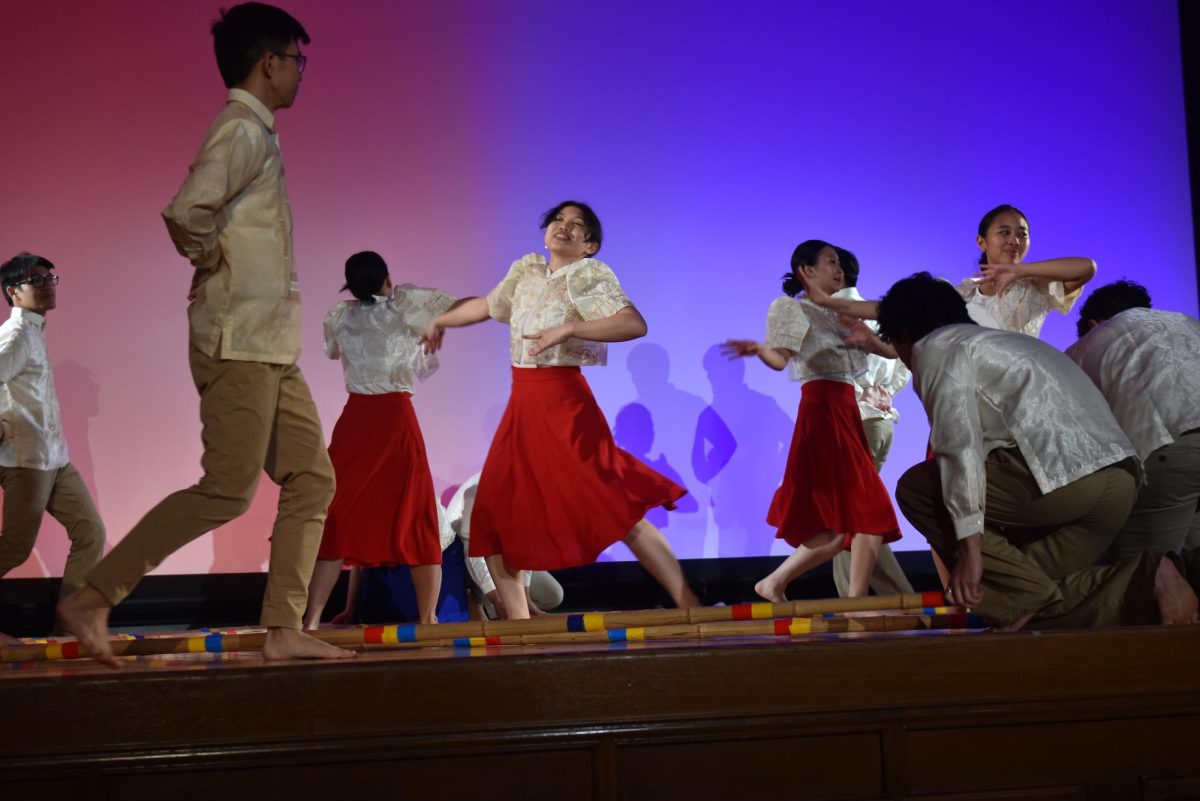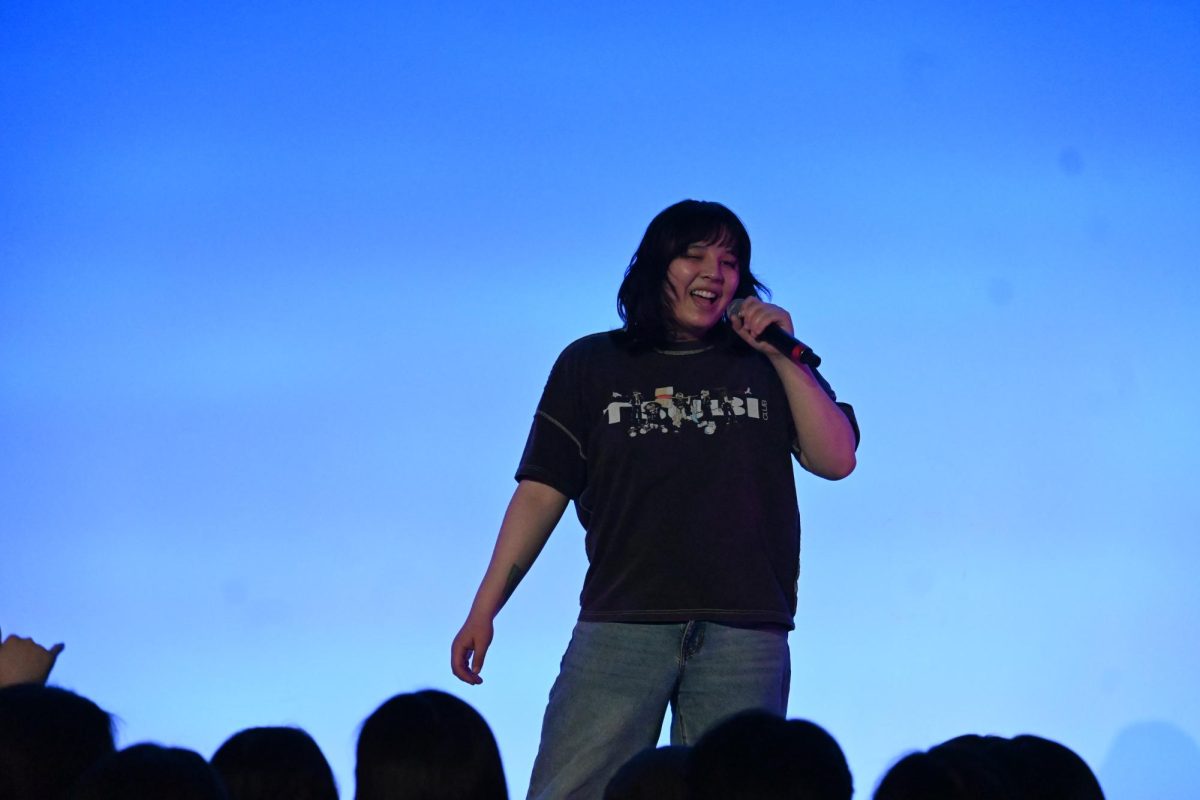A team of Northwestern researchers have explored the ways music and breathwork can support children’s psychological well-being since June 2020.
The Music for Childhood Well-Being Initiative is a global, multidisciplinary project that examines music as an intervention for reducing stress and anxiety. The project, which is co-directed by Bienen Prof. Sarah Bartolome and clinical psychologist and Feinberg School of Medicine Prof. Nicole St. Jean, is run by researchers specializing in music education, psychology and biomedical engineering.
When MCWI was first founded, its researchers were primarily interested in investigating how group singing and breathwork could support children who had experienced developmental disruption and trauma due to the COVID-19 pandemic, Bartolome said.
St. Jean also noted MCWI launched amid immigration and refugee crises, not only during the height of the pandemic.
“One of the challenges that this project was looking to take on at the time was: ‘How do we support refugee and immigrant youth, especially in those in camps that don’t have access to resources over time?’” St. Jean said.
The initiative received funding from NU’s Buffett Institute for Global Affairs and was initially titled the Trauma, Music and the Breath Global Working Group.
As the pandemic went on, Bartolome said the project realized its broader goal: supporting children’s health and well-being through music on a global scale, rather than solely treating trauma. It was renamed “The Music for Childhood Well-Being Initiative” accordingly.
“Trauma is a hard pill for many different countries and cultures to buy into, so we wanted to reframe it and refocus our intention,” St. Jean said.
The project on music and well-being studied several cohorts based in Evanston, the United Kingdom and Mexico City. As part of the data collection process, children in each cohort participated in 45-minute sessions focusing on music and breathwork.
To measure well-being during the sessions, MCWI collaborated with NU’s Rogers Research Group to develop mechano-acoustic sensors that monitored the children’s heart rate variability, indicating whether stress increased or decreased. Bartolome also said they used an app, WellCheq, to track the intervention’s impact.
“We’re looking for (a) decreased state of anxiety, increase in well-being, increase in heart rate variability, all signaling (an) improvement in well-being as a result of the interventions,” Bartolome said. “We also interview the kids every week so we get to hear what they’re thinking about the intervention. Did they enjoy it, what did they like, what was challenging?”
Because MCWI is multidisciplinary, the project team included a psychologist to make sure the intervention was safe from a clinical perspective, Bartolome said. She found St. Jean through her work as the clinical director of the Feinberg Center for Child Trauma Assessment, Services and Interventions.
Bartolome and St. Jean said they also hope to establish more national and international collaborations.
MCWI has maintained a strong working relationship with the Universidad Iberoamericana, St. Jean said, and she also recently visited Hainan Normal University in China to train music education graduate and undergraduate students.
Grace Nga (Feinberg ’24) joined MCWI after learning about it from St. Jean. During her time as a clinical psychology master’s student, she worked as a graduate research assistant at CCTASI, for which St. Jean is the clinical director.
Nga has been a part of MCWI for almost a year and called it a “meaningful experience.” Nga received her undergraduate education in Malaysia and said her interest in studying clinical psychology stemmed from her goal in improving Malaysia’s mental health landscape.
“Not a lot of policies would actually protect the citizens of Malaysia and provide mental health resources for those who are in need,” Nga said. “Growing up in that kind of landscape and also seeing a lot of the mental health challenges that (were) faced by my own family members, I was really motivated to do something to really help my own home country.”
By joining MCWI, Nga said she had the opportunity to apply her expertise in trauma to real-world settings and integrate it with intervention signs.
On April 23, MCWI launched its new cohort serving Latine families in the Evanston area, with about 10-12 children participating in their first MCWI experience, Bartolome said.
“One of the blessings and benefits of MCWI is that I am a trauma psychologist at the core,” St. Jean said. “But on this side, what we’re really looking at is resilience and well-being and flourishing of the human experience.”
Email: [email protected]
Related Stories:
— Q&A: Communication Prof. Elizabeth Norton talks children’s language, reading development research
— Northwestern engineers create ‘freedom of motion’ actuator that mimics tactile sensations
— AMASE builds community through music for special education students







